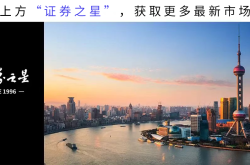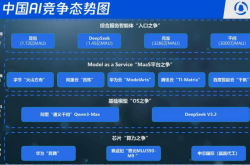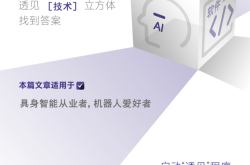Cook's Delight: Apple Dominates Price Wars, Domestic High-End Phones Struggle to Keep Up
![]() 05/13 2025
05/13 2025
![]() 563
563
Data reveals that in the high-end phone segment of 2024, Apple alone captured over 66% of the market share, with Samsung trailing behind at 18%.
Despite domestic phone manufacturers' frequent forays into the high-end market in recent years, their combined global market share in this segment remains below 15%, not even comparable to Samsung's 18%.
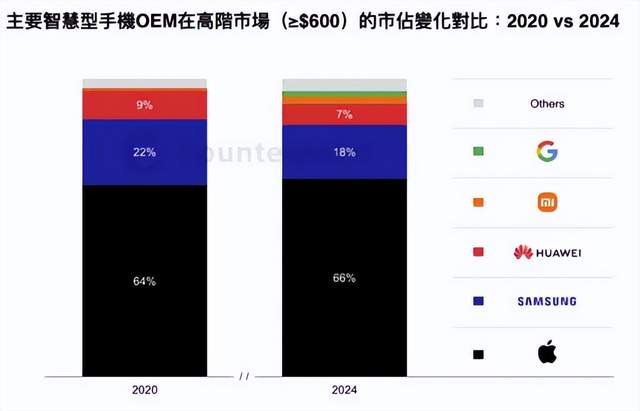
Within the Chinese market, however, domestic phones fare slightly better in the high-end sector. While Apple's share stands at 54% instead of 66%, it still maintains a dominant position. Nonetheless, the combined share of all domestic phones still falls short of Apple's.
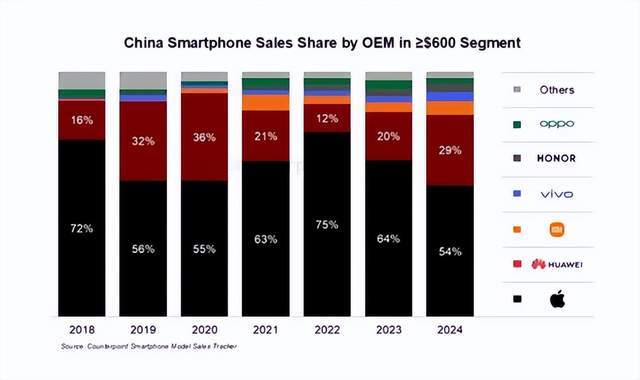
As illustrated in the chart above, for phones priced above $600, Apple commands 54% of the market, significantly outpacing any domestic competitor, with Huawei only managing 29%, far from matching Apple.
It's worth noting that compared to previous years, Apple's high-end market share has declined, thanks in part to domestic brands, particularly Huawei, capturing some of Apple's market share.
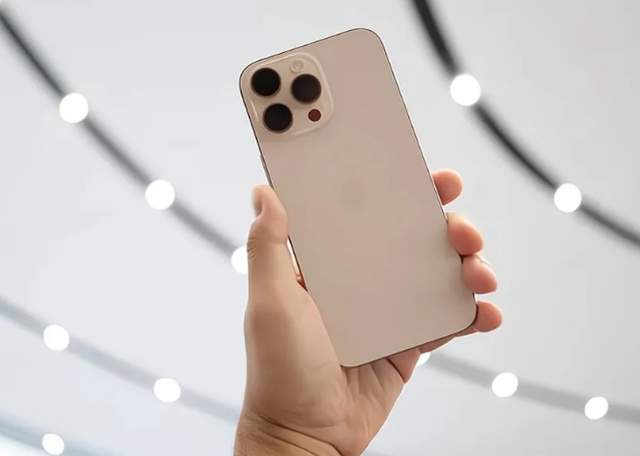
However, given the recent developments, if Apple intensifies its price wars, domestic high-end phones may once again find themselves in a precarious position.
Why do I say this? Over the past few days, Apple has engaged in its most aggressive price war for the iPhone 16 Pro, which has been swiftly snapped up by consumers, effectively demonstrating this point.
Starting from Sunday, several major e-commerce platforms adjusted the price of the 128GB version of the iPhone 16 Pro to RMB 5,999. Since it falls below the RMB 6,000 threshold, it qualifies for a government subsidy of up to 15%, or a maximum of RMB 500, which can be stacked on top of the discounted price, bringing the total down to RMB 5,499.

Frankly, this price might be the lowest ever for an Apple Pro series model. Hence, upon the price drop, consumers went wild, placing orders frantically, causing e-commerce platforms to run out of stock multiple times.
Some institutions have analyzed that within just two days, sales equivalent to those of a month or even longer were likely achieved. The iPhone 16 Pro at RMB 5,499 is incredibly attractive, prompting consumers to make purchases without waiting for the 618 shopping festival.

To be honest, although some might still gripe about the 128GB storage capacity of the iPhone 16 Pro being insufficient, compared to domestic flagship phones at the same price point, the iPhone 16 Pro has no shortcomings and even excels in many areas, such as chips, ecosystem, photography, video, power management, and user experience.
The public's judgment is sharp. Saying you support something isn't true support; only spending real money signifies genuine backing. Therefore, it's evident that if Apple intensifies its price wars, domestic high-end phones may truly struggle to compete.
Imagine if Apple goes even further and drops the price of the iPhone 16 Pro Max to RMB 7,000; which domestic phone could possibly compete at that price point?

